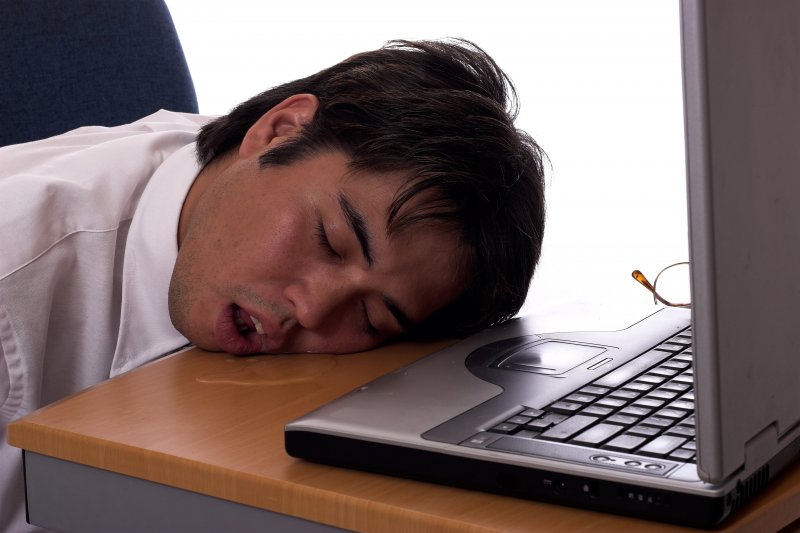Drooling is the term for saliva that unintentionally spills out of your mouth. Excessive saliva or weak or underdeveloped mouth muscles are common causes. The saliva is produced by the salivary glands, which are bodily components. You have six of these glands, and they are located at the bottom of your mouth, in the cheeks, and near to your front teeth. These glands typically create 2 to 4 quarts of saliva every day. If these glands secrete too much saliva, you might drool.
Drooling is typical during the first two years of life. Typically, it takes 18 to 24 months for infants to fully develop their capacity for swallowing and mouth muscle control. Another indication that a baby is teething is drooling, It is also normal during sleep.
For infants, drooling is a normal part of development, but it can be problematic for kids and adults. There are numerous causes for drooling. For instance, this symptom can be brought on by allergies and particular neurological diseases.
Excessive drooling could embarrass some people. Nevertheless, it shouldn’t be embarrassing. In rare circumstances, excessive salivation can lead to difficulties swallowing and other concerns. Excessive drooling may be referred to by doctors as sialorrhea or ptyalism.
In this article, we’ll look at some of the possible reasons why people drool as well as some of the remedies that can help.
Causes of Drooling
One’s health condition may cause drooling. It could also be a negative medicinal side effect. It can be brought on by any illness, condition, or treatment that weakens the muscles, increases saliva production, or makes it difficult to swallow.
The potential causes of drooling include the following:
Age
Infants are more likely to drool since their mouth muscles are not fully developed until they are a bit older. It can also occur when a baby is teething.
Diet
Drooling can result from eating acidic foods, such as alcohol and some fruits, which can promote excessive saliva production.
Allergies
People who suffer from seasonal allergies may spit out more than usual, which can cause drooling. Additional signs of allergies include:
- Itching and watery eyes
- Sneezing
- A runny nose
Medications
It’s possible for some drugs to increase salivation production. A list of potential offenders would be drugs for:
- Psychiatric disorders
- Myasthenia gravis
- Alzheimer’s disease
Neurological Conditions
Drooling can also be brought on by some neurological diseases. These include ailments that exacerbate muscle weakness, particularly in the face. Examples of neurological diseases that may affect a person’s capacity to swallow or close their mouth include:
- Parkinson’s disease
- Stroke
- Amyotrophic lateral sclerosis (ALS)
- Cerebral palsy
Other Conditions
Drooling can also result from other medical disorders that increase saliva production or make swallowing difficult. Examples of such circumstances include:
- Sleep apnea
- Acid reflux
- Infections, such as tonsillitis, strep throat, or sinusitis
- Anatomical abnormalities in the head and neck
Treatments
Occasionally, drooling goes untreated. If a patient is younger than 4 years old or drools as they sleep, a doctor typically won’t suggest any treatment.
Drooling that is extreme may call for medical attention. If saliva drops from your mouth to your clothing, your drooling may be deemed serious, as may the way it affects your everyday life and social interactions.
Inhaling too much saliva into the lungs, which can result in pneumonia, is another risk factor for excessive drooling.
Case-by-case consideration of available treatments is done, but generally speaking, your doctor will undertake an evaluation and develop the management strategy that is most effective for you.
The noninvasive strategy involves experimenting with items like medicine and oral motor therapy. In more severe circumstances, you and your doctor may discuss a more invasive approach, including possible treatments like radiotherapy and surgery.
Therapy
To help with lip closure and swallowing, speech and occupational therapists teach placement and posture control. You will concentrate on increasing muscle tone and salivary control with the help of your therapist.
In order to reduce the number of acidic foods in your diet, therapists may also advise that you consult a nutritionist.
Appliance or Dental Device
Lip closure during swallowing is assisted by a specific device put in the mouth. A dental appliance or other oral prosthetic device, such as a chin cup, may aid with swallowing, tongue positioning, and lip closure. If you can control your swallowing, this choice will work best for you.
Medications
Some drugs can help you produce less saliva. These consist of:
- Scopolamine (Transderm Scop), which is applied as a patch to the skin, gradually releases the drug throughout the day. Each patch has a 72-hour lifespan.
- Glycopyrrolate (Robinul), which is administered intravenously or orally. This medicine lessens salivation, however as a result, it may result in dry mouth.
- Atropine sulfate is administered orally as drops. People who are receiving care at the end of their lives typically use this.
- Injections of botox: By tightening the muscles in the face, Botox injections may help lessen the symptoms of drooling.
Surgical intervention
Drooling can be treated with a number of methods that have been approved. To stop drooling outside of the mouth, the most popular procedure reroutes the salivary ducts to the rear of the mouth. Your salivary glands are entirely removed by another surgery.
Summary
Drooling is a typical sign of many neurological and medical problems. Although it can seem like a little issue, it can have a negative effect on someone’s quality of life.
Skin conditions and respiratory infections can result from drooling. Additionally, it could be detrimental to someone’s social life and sense of self-worth.
There are a number of techniques to address excessive drooling, including counseling, oral devices, drugs, and, in severe situations, surgery, even though prolonged drooling can be difficult to manage.
A balanced diet and paying attention to your body can assist with some issues. Your physician can assist you in creating a treatment strategy for anything significant.
